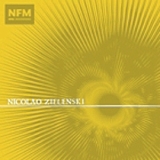(Norbert Tischer) – Diese CD enthält eine Auswahl von Werken aus der Sammlung Offertoria et communiones totius anni, die 1611 in Venedig von einem der herausragendsten polnischen Komponisten der Wende des 16. und 17. Jahrhunderts, Mikolaj Zielenski, veröffentlicht wurde. « Angesichts der Notwendigkeit, aus 113 erhaltenen Zielenski-Werken eine Auswahl zu treffen, beschloss ich, die Erzählung auf die Heilsgeschichte zu stützen, genauer gesagt auf die Erfüllung der Schrift beim Kommen Jesu Christi – dem Messias, » schreibt Andrzej Kosendiak im Booklet. Die Texte umfassen also die Heilsgeschichte ab der Verkündigung bis nach der Auferstehung. Gleichzeitig ging es dem Dirigenten darum, die passende Besetzung und stilistische Vielfalt von Zielenskis Werken zu zeigen.
Mikolaj Zielenski war Organist und Kapellmeister am Hof des Erzbischofs Wojciech Baranowski von Gniezno. Von seinem Leben ist kaum etwas bekannt, nicht einmal das Datum von Geburt und Tod. Es gab Vermutungen, dass er nach Italien gereist war, da seine Musik stark vom polychoralen Stil von Giovanni Gabrieli beeinflusst ist und seine Sammlung von 1611 in Venedig gedruckt wurde, aber es gibt keine Belege dafür.
Andrzej Kosendiak hat mit seinem klein besetzten Wroclaw Baroque Ensemble eine flexible und agile Gruppe, die in fein nuancierten und bestens ausbalancierten Interpretationen diese Musik authentisch werden und gleichzeitig ihren emotionalen Gehalt in guter Dosierung wirkungsvoll werden lässt. Im Gegensatz zu früheren Aufnahmen dieses Repertoires, die mit größeren Ensembles gemacht wurden, ist die Produktion auf Wroclaw in allen Hinsichten passend und zeigt zudem ein musikalisches Niveau, mit die Musiker des Nationalen Musikforums aus Wroclaw ihre Zugehörigkeit zur Spitzenklasse bestätigen.
This CD contains a selection of works from the collection Offertoria et communiones totius anni, published in Venice in 1611 by one of the most outstanding Polish composers of the turn of the 16th and 17th centuries, Mikolaj Zielenski. « In view of the necessity of making a selection from 113 preserved Zielenski works, I decided to base the story on the history of salvation, or more precisely on the fulfilment of Scripture at the coming of Jesus Christ – the Messiah, » writes Andrzej Kosendiak in the booklet. The texts thus cover the history of salvation from the Annunciation to the Resurrection. At the same time, the conductor was concerned to show the appropriate instrumentation and stylistic diversity of Zielenski’s works.
Mikolaj Zielenski was organist and Music Director at the court of Archbishop Wojciech Baranowski of Gniezno. Little is known about his life, not even the date of his birth and death. There were speculations that he had travelled to Italy, as his music is strongly influenced by the polychoral style of Giovanni Gabrieli and his collection of 1611 was printed in Venice, but there is no evidence of such a journey.
With his small Wroclaw Baroque Ensemble Andrzej Kosendiak has a flexible and agile group, which in finely nuanced and well-balanced interpretations makes this music authentic, while at the same time allowing its emotional content to be effective. In contrast to earlier recordings of this repertoire, which were made with larger ensembles, the production on Wroclaw is appropriate in all respects and also shows a musical level with which the musicians of the National Music Forum from Wroclaw once more confirm their outstanding musicianship.
(Guy Engels) – Die Biographie des polnischen Barockkomponisten Mikolaj Zielenski bleibt noch größtenteils zu erforschen. In historischen Quellen wird er als Organist in Plock erwähnt. Zu seinen großen Sammlungen gehören die Offertoria totius anni und die Communiones totius anni, die beide als Grundlage für diese neue Aufnahme dienten.
Das Wroclaw Baroque Ensemble formuliert die jeweiligen liturgischen Texte rhetorisch klar aus. Hier gibt es keine Zweideutigkeiten, denn das Ensemble ist erfahren in der musikalisch-historischen Ausdeutung. Andreij Kosendiak pflegt einen feierlichen Klang, der sakralen Erhabenheit des Themas angemessen, ohne die Musik zu romantisieren. Sein Ensemble musiziert auf den Instrumenten leicht und transparent. Dem entspricht auch der Vokalpart mit einer stimmlich tadellos ausgeglichenen Sängerbesetzung.
























